Events

- This event has passed.
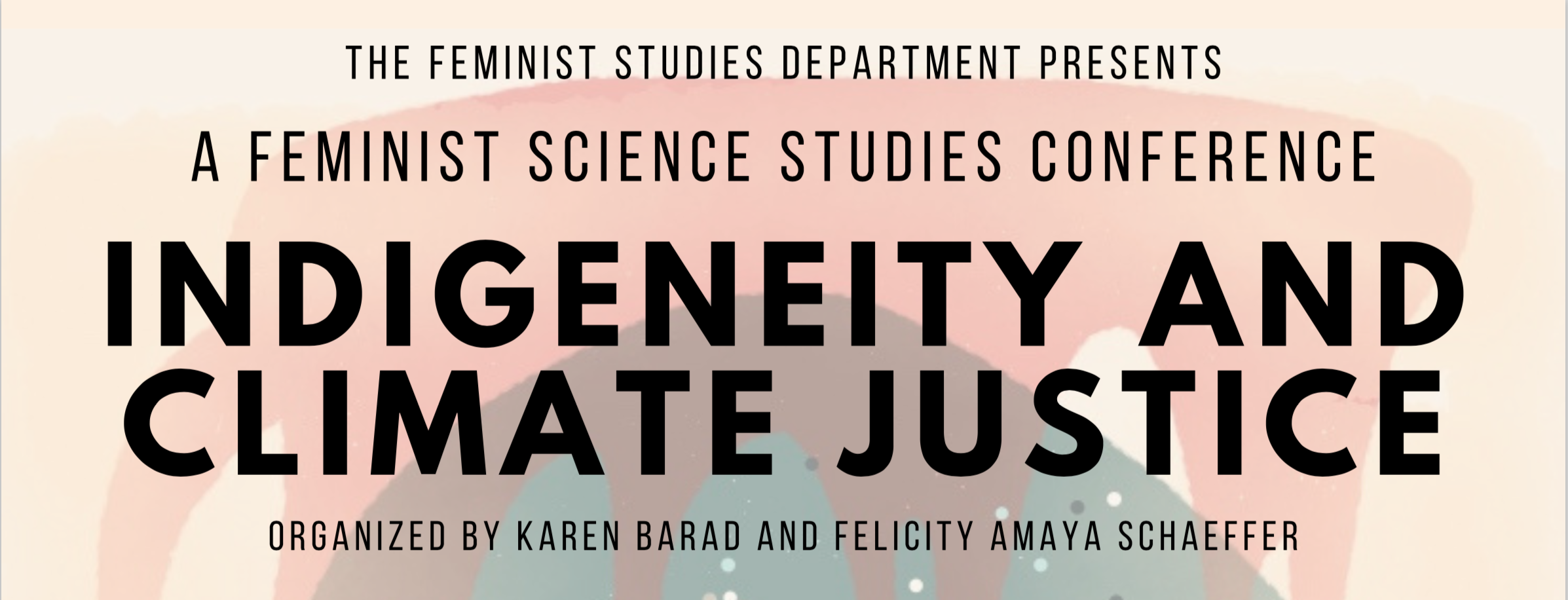
Feminist Science Studies Conference: Indigeneity and Climate Justice Day 1
May 30, 2019 @ 9:30 am - 3:30 pm | UCSC Arboretum
Organized by Karen Barad and Felicity Amaya Schaeffer.
The 2019 UCSC Feminist Science Studies conference takes as its focus the theme of “Indigeneity and Climate Justice.” Climate Justice, as opposed to the more narrow framings of “environmental justice,” marks the consideration of the entanglement of ecological, cultural, social, political, geological, biological and other forces, understood as simultaneous and mutually constitutive. A shared concern among our esteemed keynote speakers is the question of how to respond to the challenges of collaborative engagements between Indigenous and non-Indigenous approaches to caring for the Earth. We invite them to engage in conversation with each other and students, faculty, staff, and other conference participants about these pressing questions of multiple ontologies, epistemologies, and uneven responsibilities.
Métis Scholar of Sociology and Anthropology, Carleton University, Canada
Visiting Professor of History, Yale University
Key Note Speakers:
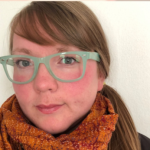 Zoe Todd
Zoe Todd
This talk explores Alberta, Canada as a site of intense western knowledge production about topics that are currently ‘hot’ in euro-western academe, such as: extinction, the Anthropocene, environmental degradation, climate change, and energy studies. Challenging the tendency for scholars to literally or figuratively drop into Alberta to mine it for data and information, Todd explores what it means to re-situate studies of earth violence in the Alberta petro-state as ones that require deep relationality and reciprocity.
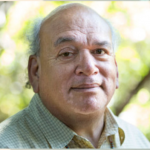 Valentin Lopez
Valentin Lopez
Alfred Deakin Postdoctoral Research Fellow of Anthropology and Geography
Deakin University, Australia
For some, it seems, the concept of the Anthropocene has delivered a welcome dose of universalism. We must put aside the differences which previously proscribed the very existence of a ‘we’ – the ethics which outlawed such pronouns as a presumptuous act of capture – and see that beings on this planet are unified by their inevitable geological materiality; the dark anthropogenic end of their stony fate. In this presentation, Neale offers a critique of these universalist and redemptive manoeuvres by exploring the temporality, offered by several Indigenous interlocutors, of ‘upside down Country.’ What practices and horizons are meaningful in a place where Country – or, the emplaced and providential order of things – has bee churned and flipped?
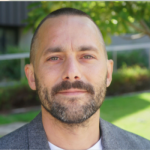 Timothy Neale
Timothy Neale
Timothy Neale is a pakeha (settler) researcher and teacher from Aotearoa New Zealand but currently lives in Naarm/Melbourne, Australia, where he holds an appointment as Senior Lecturer in Anthropology and Geography at Deakin University. His research focuses on environmental governance, settler-Indigenous relations, technoscience, and the intersections of those three topics. He is the author of Wild Articulations: Indigeneity and Environmentalism in Northern Australia (University of Hawaii Press, 2017).
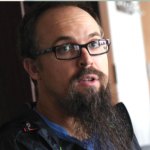 Kyle Powys Whyte
Kyle Powys Whyte
Timnick Chair in the Humanities. Associate Proefssor of Philosophy and Community Sustainability. Michigan State University
Climate change activism and scientific assessments often emphasize that humans must grasp the urgency of taking swift and decisive actions to address an environmental crisis. Yet many such conceptions of urgency obscure the factors that Indigenous peoples have called out as the most pressing concerns about climate justice. This obfuscation explains, in part, why climate change advocacy remains largely unrelated to Indigenous efforts to achieve justice and engage in decolonial actions. Whyte shows why a politics of urgency can be based in assumptions about the relationship among time (temporality) and environmental change that are antithetical to allyship with Indigneous peoples and, ultimately, climate justice.
Kyle Whyte is a professor in the departments of Philosophy and Community Sustainability and holds the Timnick Chair in the Humanities at Michigan State University. His work focuses on environmental justice, especially climate change issues that Indigenous peoples face in planning, policy, science, and activism. He is a Potawatomi and an enrolled member of the Citizen Potawatomi Nation.
Arboretum Tour with Rick Flores, who is the curator of the California Native Plant Collection and the associate of the Amah Mutsun Land Trust.
Program Day 1:
9:30am – Mingling and continental breakfast
10:00am – Conference Welcome
10:15am – Valentin Lopez
15 minute break
11:15am – Zoe Todd
12:45pm – Lunch
2:00pm – Kyle Powys Whyte
3:30pm – Conclusion
For more information including directions and parking please visit:
https://feministstudies.ucsc.edu/news-events/department-news/science-conference/index.html
